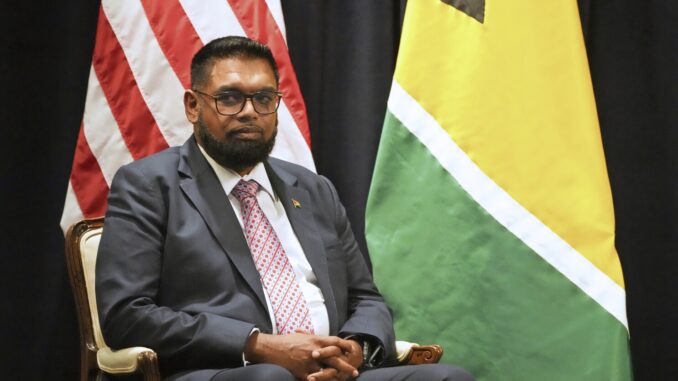
UP-DATE:………..
Pledges cash, free tuition, and other benefits by GUYANA ahead of election
ANALSIS
Ahead of the upcoming elections, the government of Guyana has made a series of significant pledges aimed at securing voter support and addressing pressing social needs. These promises include financial incentives, free tuition for students, and various other benefits that are anticipated to improve the quality of life for many citizens.
BREAKDOWN:……….
One of the centerpiece initiatives is the commitment to cash transfers for low-income families. This move is intended to alleviate some of the economic pressures faced by households, especially in light of rising living costs. By providing direct financial assistance, the government hopes to demonstrate its commitment to the welfare of its citizens and to gain favor with voters who may be struggling financially.
In addition to cash transfers, the government has announced a plan to offer free tuition for students at public educational institutions. This initiative is particularly significant in a country where access to quality education can be a barrier for many families. By eliminating tuition fees, the government aims to make higher education more accessible and to encourage a more educated workforce. This pledge is expected to resonate with young voters and their families, who see education as a pathway to better opportunities.
Moreover, the government is also focusing on enhancing healthcare services. The promise to increase funding for public health initiatives, including maternal and child health programs, reflects an understanding of the critical health challenges faced by the population. Investments in healthcare are crucial, particularly in rural areas where access to medical facilities can be limited.
The electoral strategy also includes promises to improve infrastructure, such as roads and public transportation systems. By addressing these infrastructural needs, the government aims to facilitate economic development and improve connectivity across the country, which can enhance trade and mobility for citizens.
These pledges come at a time when political competition is heating up, with various parties vying for the support of a populace that is increasingly aware of its rights and needs. The government’s approach appears to be a calculated effort to not only bolster its image but also to address genuine concerns of the electorate.
However, while these promises may be appealing, they also raise questions about feasibility and sustainability. Critics argue that without a clear plan for funding these initiatives, they may remain unfulfilled after the elections. The effectiveness of such pledges will depend on the government’s ability to manage resources efficiently and to implement these programs effectively.
In conclusion, the government’s promises of cash transfers, free tuition, and improved healthcare and infrastructure are part of a broader strategy to engage voters ahead of the elections in Guyana. Whether these initiatives will translate into tangible benefits for citizens or whether they are merely electioneering tactics remains to be seen. The upcoming election will serve as a critical juncture for the nation, where the electorate will weigh these promises against the backdrop of their lived experiences and expectations.
Leave a Reply